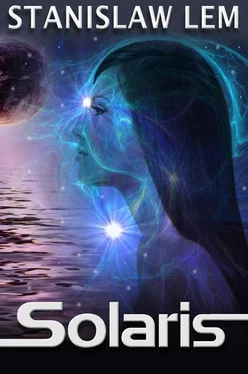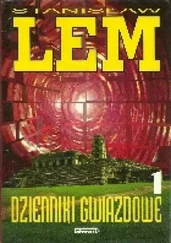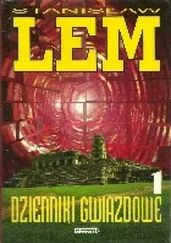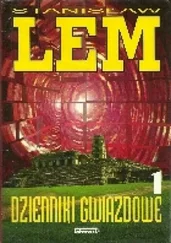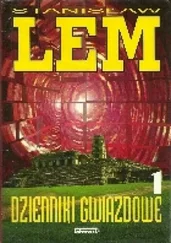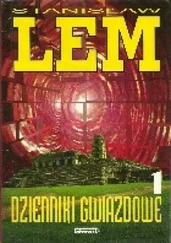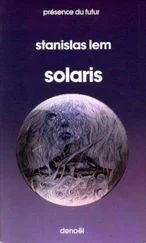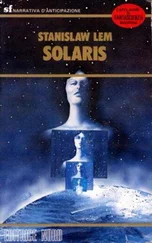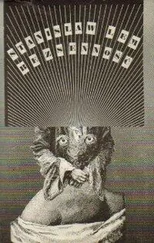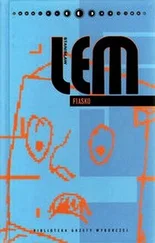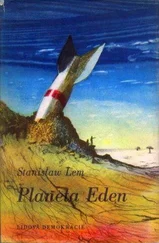“Kris, is it because of this experiment?”
I flinched at the sound of her voice. I’d been lying sleepless for hours, staring into the darkness, alone, because I couldn’t even hear her breathing, and in the tangled labyrinth of nighttime thoughts that were feverish, half logical, and thus acquired a new dimension and meaning, I’d forgotten about her.
“What… How did you know I wasn’t asleep…?” I asked. There was fear in my voice.
“From the way you’re breathing,” she said quietly, as if apologetically. “I didn’t mean to bother you… If you can’t talk, don’t…”
“No, why not. Yes, it’s the experiment. You guessed.”
“What do they expect it to accomplish?”
“They don’t know themselves. Something. Anything. This isn’t Operation Thought, it’s Operation Despair. Now they only need only one thing, someone who’ll have enough courage to make a decision, but most people see that kind of courage as ordinary cowardice, because it’s a retreat, you know, surrender, an escape that’s unworthy of a person. As if worthiness was plodding forward and getting bogged down, and drowning in something you don’t understand and never will.”
I broke off, but before my quickened breathing calmed down I gave vent to a new burst of anger:
“Of course there’s never any lack of guys with a practical outlook. They said that even if contact isn’t made, still, by studying the plasma and all those crazy living cities that pop out of it for a single day then disappear again, we’ll learn the secrets of matter, as if they didn’t know they’re fooling themselves. They’re wandering around in a library of books written in an unknown language, and just looking at the colors of the spines… That’s how it is!”
“Are there no other planets like this?”
“No one knows. Perhaps there are, but we only know this one. In any case it’s something extremely rare, unlike Earth. Us, we’re common, we’re the grass of the universe, and we take pride in our commonness, that it’s so widespread, and we thought it could encompass everything. It was a kind of schema we took with us when we set off intrepidly and joyfully on our long journey: other worlds! But what exactly are they, those other worlds? We’d conquer them or we’d be conquered, there was nothing else in those wretched brains of ours. It wasn’t worth it. It really wasn’t.”
I got up; in the dark I found the first aid kit and a flat bottle of sleeping pills.
“I’m going to get some sleep, darling,” I said, turning towards the darkness, from where there came the high-pitched hum of the air conditioning. “I need to sleep. Otherwise I really don’t know…”
I sat back down on the bed. She touched my hand. I put my arms around her, unseen, and held her without moving until my grip was loosened by slumber.
In the morning, when I woke fresh and rested, the experiment seemed trivial to me; I couldn’t understand how I could have attached so much importance to it. I didn’t care either that Harey had to go to the lab with me. All her efforts became futile after I’d been gone from the room for a few minutes, so I gave up any thoughts of further attempts, even though she herself urged them (she was even prepared to be locked up somewhere); I suggested she take a book to read.
I was interested less in the procedure itself than in what I’d find in the laboratory. Aside from certain evident gaps in the bookcases and the cabinets with chemical glassware (in addition to which, panes were missing in the doors of several of the cabinets, while one of the doors itself had a star-shaped crack as if there’d been a recent struggle whose traces had been hurriedly though rather carefully covered over), there was nothing out of the ordinary in that blue and white room. Snaut, who was bustling about among the equipment, behaved entirely correctly, accepting the presence of Harey as something quite ordinary, and bowing slightly to her from a distance. As he was moistening my temples and forehead with conductive gel, Sartorius came in through a small door that led to the darkroom. He was wearing a white lab coat, over which he had a black anti-radiation apron that reached down to his ankles. Brisk and matter-of-fact, he greeted me as if we were just two employees among a hundred at some big institute on Earth and had seen each other just the previous day. It was only now I noticed that the lifeless expression of his face came from contact lenses, which he wore instead of eyeglasses.
Arms folded on his chest, he stood and watched as Snaut wrapped a bandage around the electrodes attached to my head, forming a kind of white cap. Several times he cast his eyes about the whole room, seeming not to notice Harey, who sat hunched and uncomfortable on a small stool by the wall, pretending to read her book. When Snaut stepped away from my chair I moved my head, which was weighed down with metal and wires, to watch him turn on the apparatus. But all at once Sartorius raised his hand and said unctuously:
“Doctor Kelvin! I’d like to ask for a moment of your attention! I don’t wish to impose anything on you, for that would not serve our purpose; but you need to stop thinking about yourself, about me, about our colleague Snaut, about any other persons, so that by eliminating the randomness of particular individuals, you concentrate on the matter at hand. Earth and Solaris; generations of researchers who constitute a whole, despite the fact that particular people have their beginnings and endings; our unyielding efforts at establishing intellectual contact; the historical path taken by humanity; the certainty that it will be continued into the future; the readiness to make any effort and any sacrifice, to give up all personal feelings in the interests of our mission — these are the subjects that ought to fill your consciousness completely. True, the sequence of associations does not depend entirely on your will, but the fact that you are here at all guarantees the authenticity of the continuity I speak of. If you are uncertain you have performed the task appropriately please say so, and Dr. Snaut will repeat the recording. After all, we do not lack for time…”
He uttered these last words with a pale dry smile that did not detract in the slightest from the expression of penetrating consternation in his eyes. I was writhing inside from this mountain of cliches pronounced with such earnestness and gravity; fortunately Snaut interrupted the lengthening silence.
“Shall we, Kris?” he asked, leaning on the high console of the electroencephalograph, in a casual, unconstrained pose, as if he were resting his elbow on an armchair. I was grateful to him for using my first name.
“Yes,” I said, half-closing my eyes. The jitters that had laid waste to my mind when he finished attaching the electrodes and placed his fingers on the switch suddenly passed; through my eyelashes I could see the pinkish glow of the control lights on the black dashboard of the machine. The cold, disagreeable chill of the metal electrodes, pressed to my head like frozen coins, also went away. I was like a dark, unlit stage. The empty space was surrounded on all sides by an invisible crowd of spectators gathered in a circle around a silence filled with an ironic contempt for Sartorius and the Mission. The tension felt by these inner observers, eager to play an improvised role, grew weaker. “Harey?”—I thought the word as a test, with a sickening unease, prepared to withdraw it immediately. But that blind, attentive audience of mine did not protest. For a certain short time I was nothing but pure tenderness, sincere regret, willing to undertake long, patient sacrifices. Harey filled me, lacking features, shape, face; and at the same time, through the impersonal idea of her, infused with desperate affection, I had a vision of Giese, the father of solaristics and of solaricists, in all the dignity of his professorial presence. But I wasn’t thinking about the muddy explosion, about the stinking void that swallowed up his gold-rimmed spectacles and his scrupulously brushed gray mustache. I could only see the engraving on the title page of his monograph, the densely hatched background the artist had added around his head such that it appeared unsuspectingly almost in an aureola, so similar not in its features but its steadfast old-fashioned prudence to the face of my own father, and in the end I didn’t know which of the two of them was looking at me. Neither of them had a grave, something that in our times was so frequent and ordinary that it stirred no particular feelings.
Читать дальше
